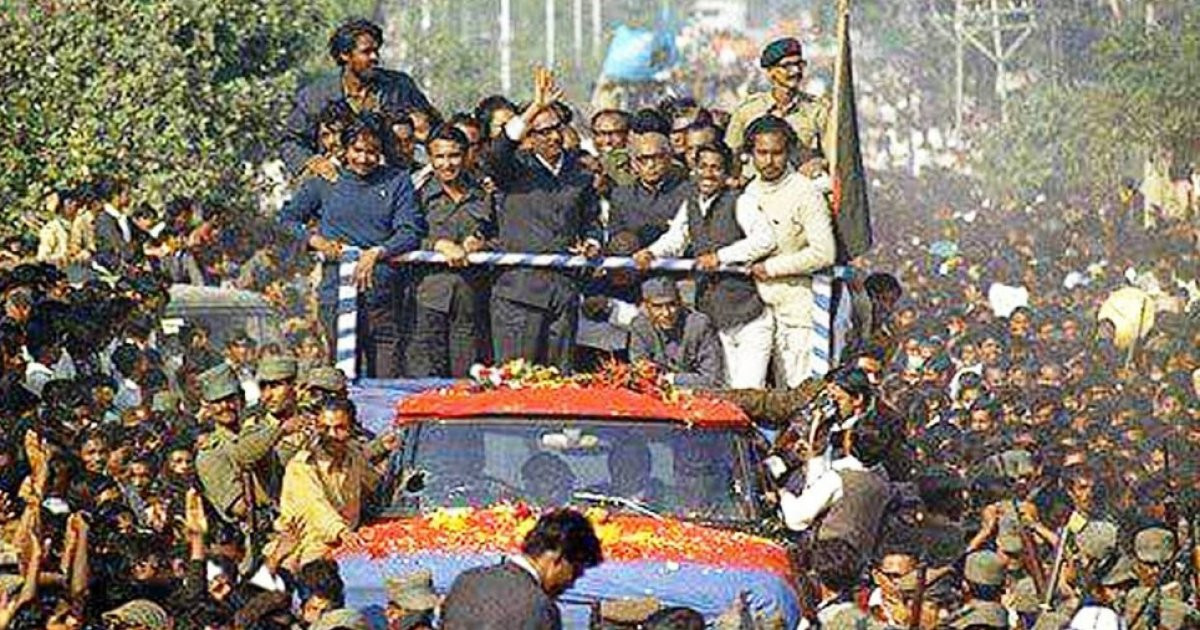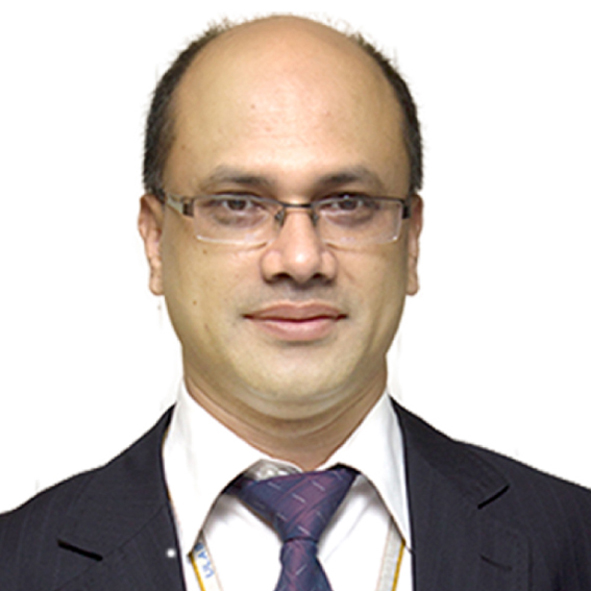Opinion
Bangabandhu's Homecoming Made Victory Complete
Prof Md Sazzad Hossain, UGC Member
Published: 09 Jan 2024

-- Collected
Sheikh Mujibur Rahman, fondly known as Bangabandhu (Friend of Bengal), was not just a politician but a revolutionary leader who marked his name in the annals of history. His journey, from a simple village boy to the architect of Bangladesh, was filled with momentous events that shaped the destiny of a nation.
Bangabandhu's commitment to democracy and economic development laid the foundation for the progress Bangladesh has made in recent years. His vision of a self-reliant and prosperous nation motivates the present generation to work towards achieving his goals.
Born in Tungipara village in 1920, Mujib's childhood was marked by his father's progressive ideas and his mother's unwavering support. His father, Sheikh Lutfar Rahman, instilled in him a sense of justice and fairness, while his teachers at Gopalganj Missionary School nurtured his intellectual curiosity and leadership qualities. His father taught him the philosophy of ‘Sincerity of purpose and honesty of purpose,’ which encouraged him to be determined and steadfast in his future life. He adores humanity in all of works. A line from his book, the Unfinished Memories, ‘As a man, what concerns mankind concerns me,’ indicates his notion of humanity. From this book, we are also informed that he worked for the poor people in his village from the young age and also initiated a relief camp during the famine of 1943. He also believed that to do noble deeds, one must be ready to dedicate his one’s life. ‘Secularism’ is an integral part of Bangabandhu's philosophy of life. A quotation from the Unfinished Memories, ‘There was no such thing as Hindu-Muslim to me then. I was very friendly with Hindu boys. Together we used to sing, play, roam around and everything went on,’ proves his secularism and he continued to have faith in this ideology till his last day of life.
Mujib's political awakening began during his student days at Islamia College in Calcutta. He actively participated in the Bengal Provincial Muslim League and came under the influence of Huseyn Shaheed Suhrawardy, a visionary leader who advocated for a united, independent Bengal. This exposure to Suhrawardy's ideals laid the groundwork for Mujib's future political struggles. Bangabandhu mentioned his concern over Huseyn Shaheed Suhrawardy in the autobiography, Unfinished Memories. Mujib's entry into active politics coincided with the turbulent years following the partition of India in 1947. He joined the Awami League, a party that championed the rights of the Bengali people within Pakistan. His charismatic personality and powerful oratory skills soon propelled him to the forefront of the party's leadership. In the Unfinished Memories, Bangabandhu also expressed his ardent love for Bengali art, literature, music and language.
Bangabandhu’s life was a journey marked by resilience, leadership, and an unwavering commitment to the ideals of democracy, justice, and the well-being of the Bengali people. Mujib's leadership during the nine-month war was instrumental in securing Bangladesh's independence in 1971. He emerged as the undisputed leader of the newly formed nation and became its first Prime Minister. He continued to champion the cause of the Bengali people and played a pivotal role in the historic Language Movement of 1952, which secured the recognition of Bengali as an official language of Pakistan. In 1966, Mujib presented his Six-Point Movement, a comprehensive plan for autonomy for East Bengal within Pakistan. This program resonated with the aspirations of the Bengali people and ignited a mass movement for self-determination. This movement, grounded in economic, political, and cultural rights, was a precursor to the struggle for an independent Bangladesh. The Pakistani government's refusal to address the demands of the Bengali people triggered a mass uprising in 1969.
"Operation Search-Light" was initiated by the Pakistani army on the evening of March 25, 1971. After learning of the killings that had occurred in Dhaka and other places, Mujib came to the conclusion that Bangladesh's people would have to proclaim their independence. Bangabandhu declared the independence of Bangladesh from Pakistan on March 26, 1971, in response to years of political, economic, and social marginalisation faced by the people of East Pakistan under the ruling establishment based in West Pakistan. His impassioned call for independence galvanized the nation, inspiring millions to join the struggle for freedom. With this declaration of independence, the Bangladeshi military and the Pakistani military engaged in armed combat for nine months, initiating the Bangladesh Liberation War. On December 16, 1971, the Bangladesh Liberation Forces emerged victorious in the war, paving the way for Bangladesh to become a sovereign nation.
Bangabandhu Sheikh Mujibur Rahman once remarked- “I will sacrifice my life, if necessary, to eliminate all injustice and exploitation from the country.” The Pakistani government hounded Bangabandhu nonstop because he stood up for the causes he supported. However, his imprisonment did not dampen his spirit He was wrongfully accused of sedition in 1965 and given a one-year jail term, but the High Court later ordered his release. Along with 34 other Bengali civil and military officers, the Pakistani government named Bangabandhu as the primary defendant in the infamous Agartala conspiracy case in 1968. The accused were accused of planning an armed uprising to force East Pakistan to secede from the rest of Pakistan. Again, on March 25, 1971, Bangabandhu Sheikh Mujib was arrested, tried in camera for sedition in Lyallpur Central Jail in West Pakistan and sentenced to death.
After Bhutto released him, the British government transferred him by PIA to London, from there he was transported by Comet Jet to Bangladesh on 10 January 1972, where he assumed leadership of the recently established independent nation of Bangladesh. This is why, 10 January marks the historic homecoming of Bangabandhu Sheikh Mujibur Rahman. His return symbolized the culmination of the nine-month-long Bangladesh Liberation War and the birth of a new nation. He was met with a hero's welcome by millions of jubilant citizens. Following his arrival in Dhaka, Bangabandhu addressed a massive crowd gathered at the Suhrawardy Udyan. He formally declared Bangladesh's independence, cementing the nation's sovereignty and solidifying the sacrifices made during the war. While January 10th marked a major victory, the challenges of nation-building and ensuring a just future for the Bengali people remained. The date serves as a reminder of the ongoing struggle for social justice, equality, and a prosperous Bangladesh. On tragic 15 August 1975, the savage murder of his wife, Begum Fazilatunnesa Mujib, and their three boys on the same night of his killing highlighted the Mujib family's ultimate sacrifices for Bangladesh and its causes.
After independence, Mujib faced the daunting task of rebuilding a war-torn nation. He embarked on a series of reforms aimed at establishing a democratic government, promoting economic development, reconstruction, rehabilitation, and ensuring social justice. His vision for a "Sonar Bangla" (Golden Bengal) resonated with the hopes and aspirations of the people. Bangladesh enacted its first constitution in 1972 under his direction, which established the foundation for democracy and government. The principles of democracy, secularism, and socialism were inscribed in the constitution, which represented Bangabandhu's goal of creating a progressive and inclusive country. Bangabandhu highlighted the need for economic equity and social justice. He promoted policies aimed at achieving an equal distribution of opportunities and resources, with the goal of uplifting society's marginalised and underprivileged parts. He took the initiative to nationalise thousands of primary schools to ensure primary education for all. Under Bangabandhu's direction, the government nationalised a number of important industries and institutes in order to maintain state control over vital economic sectors and promote economic independence. In addition, he initiated the establishment of the University Grant Commission (UGC) to regulate higher education in Bangladesh on 16 December (the maiden victory day) in 1972. He was a strong supporter of women's empowerment and rights. His government promoted gender equality in a number of areas of society by improving women's involvement in the workforce, education, and politics. He also took steps to send government officials abroad to have higher education and training to accelerate the development process of Bangladesh. Furthermore, he emphasised the research in agriculture to make Bangladesh self-reliant in food production. The main goals of Bangabandhu's foreign policy were to foster regional cooperation and build positive relationships with other nations. He aggressively pursued worldwide diplomatic recognition and support for Bangladesh while also being involved in the Non-Aligned Movement. He also put a lot of effort into getting all of the world's major nations to recognise Bangladesh as an independent nation.
Despite the brevity of his political career, Mujib's legacy remains a beacon of inspiration for generations to come. Although he passed away at the age of 55, his accomplishments and legacy are far greater than those of many other politicians worldwide. Bangabandhu is remembered as the unwavering champion of Bengali nationalism, the architect of Bangladesh's independence, and a leader who dedicated his life to building a just and prosperous nation. His courage, determination, and strong commitment to the cause of his people continue to inspire millions around the world. The sacrifice and contribution of Bangabandhu serve as a powerful source of pride and inspiration for the present generation of Bangladesh as they strive to build a prosperous nation. Bangabandhu's fight for the rights and self-determination of the Bengali people solidified their cultural identity and heritage. His fight for the rights and self-determination of the Bengali people solidified their cultural identity and heritage.
Md. Sazzad Hossain, PhD is a distinguished senior professor, researcher, and academic teaching advisor with extensive experience in the ICT sector and a prominent writer. Currently, he is working as a full-time member of the University Grants Commission of Bangladesh (UGC). He is also a director of Bangladesh Satellite Company Ltd (BSCL). He is the founding president of Education, Research and Development Forum Bangladesh (ERDFB) and Vice President of Amrai Digital Bangladesh.

Md. Sazzad Hossain, PhD, is a senior professor and academic advisor with extensive experience in the ICT sector. He also holds a directorship at Bangladesh Satellite Company Ltd (BSCL).

